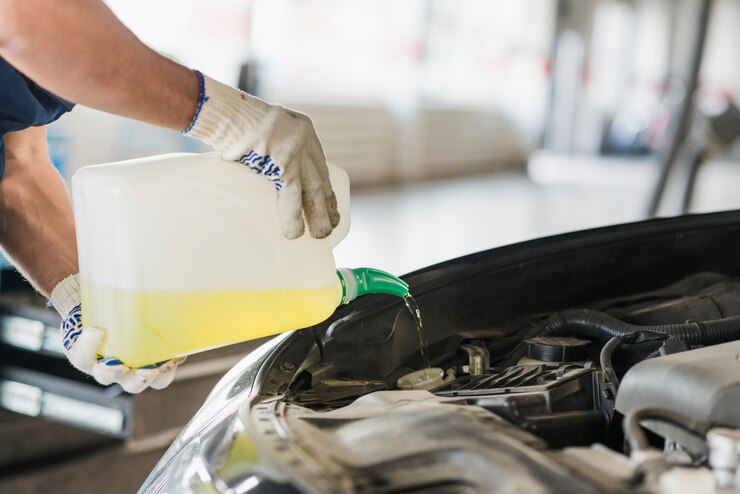
Chemicals
Ethylene Gycol
Product | Ethylene glycol |
|---|---|
Packaging | Bulk/Drum/IBC Tank |
Price | negotiable |
Payment Terms | Negotiable, T/T |
Delivery Terms
| FOB, CFR , CPT, FCA |
Min Order
| Negotiable |
HS Code | 290531 |
Ethylene glycol (IUPAC name: ethane-1,2-diol) is an organic compound with the formula (CH2OH)2. It is mainly used for two purposes, as a raw material in the manufacture of polyester fibers and for antifreeze formulations. It is an odorless, colorless, sweet-tasting, toxic, viscous liquid.
Uses:
Coolant and heat-transfer agent, Dehydrating agent, Precursor to polymers like polyester fibers, Polyethylene terephthalate,
Questions? You’re covered.
| characteristic | Test Method | Unit | Value |
|---|---|---|---|
| Purity | ASTM E - 202 | WT.% | 99.8 Min. |
| Diethylene Glaycol | ASTM E - 202 | WT.% | 0.08 Max. |
| Water Content | ASTM E - 203 | WT.% | 0.08 Max. |
| Acidity as Acetic Acid | ASTM D - 1613 | WT.PPM | 10 Max. |
| Ash | DC – 254A | Gr/100 ml | Max. 0.005 |
| Chlorides | EO - 635 | WT.PPM | 0.1 Max. |
| Iron | ASTM E - 202 | WT.PPM | 0.1 Max |
| Aldehide as Asetaldehyde | DC – 163 C | WT.PPM | 10 Max. |
| Color Pt-Co | ASTM D - 1209 | Pt - Co | 5 Max. |
| Sp.Gr (20/20 C) | ASTM D - 891 | - | 1.1151 – 1.1156 |
| Distilation @ 760 MM-HG | |||
| IBP | ASTM D-1078 | C | 196 Min. |
| DP | ASTM D-1078 | C | 199 Max. |
| 5-95 VOL % Range | ASTM D-1078 | C | 1 Max. |
| UV Transmittance | |||
| AT 220 nm | EO – 577 A | T % | 70 Min. |
| AT 275 nm | EO – 577 A | T % | 95 Min. |
| AT 350 nm | EO – 577A | T % | 99 Min. |
Ethylene glycol is commonly used as the main component in automotive antifreeze and coolant solutions. It serves as a heat transfer fluid, preventing engine overheating by absorbing and dissipating heat generated during combustion. Ethylene glycol-based coolants also provide freeze protection in cold climates.
Ethylene glycol poses environmental risks if released into the environment due to its toxicity to aquatic organisms and potential for groundwater contamination. Safety considerations include proper handling, storage, and disposal procedures to minimize the risk of spills, leaks, and exposure to humans and the environment.
Ethylene glycol is primarily produced through the hydration of ethylene oxide, a process that involves reacting ethylene oxide with water under controlled conditions to form ethylene glycol. The reaction can be catalyzed by various catalysts, and the resulting ethylene glycol is purified and concentrated for commercial use.





